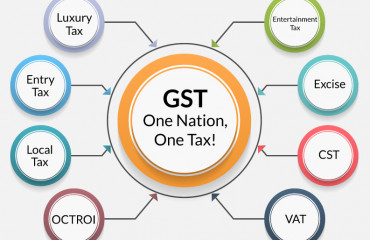
New Delhi: Finance minister Nirmala Sitharaman on Monday asked Goods and Service Tax (GST) officials to work towards making the tax regime more transparent and efficient, while also leveraging technology to step up user experience and preventing evasion.
New Delhi: Finance minister Nirmala Sitharaman on Monday asked Goods and Service Tax (GST) officials to work towards making the tax regime more transparent and efficient, while also leveraging technology to step up user experience and preventing evasion.
Sitharaman urged officials to use technology to plug loopholes and offer better taxpayer services while collaborating across the states in national interest, an official statement from finance ministry said after a national conference of enforcement chiefs of Central and State GST authorities in the capital.
Sitharaman stressed that clarity on issues relating to classification of goods and services should be looked into at the earliest. The minister said that experience of the last ten years show that the systems can be cleansed and be made more effective through persistent efforts.
Sitharaman urged GST officials to engage with stakeholders to understand their concerns, enhance compliance, streamline processes, and work collaboratively towards making the tax system more transparent and efficient, the statement said.
The ministry said that the Central Board of Indirect Taxes (CBIC) and the Directorate General of GST Intelligence (DGGI) have issued instructions on the need to have more taxpayer-friendly approach to GST enforcement, focusing on avoiding unnecessary audits on issues involving prevalent trade practices and prioritising evidence-based inquiries. The instructions also advocate requesting for information formally through letters instead of issuing summons. The nationwide crackdown on fake GST registrations and bogus invoicing from May 2023 alone has resulted in detection of tax evasion of ₹49,623 crore involving 31,512 bogus firms, the ministry said quoting a GST Council presentation. CBIC has reported tax evasion of ₹1. 14 trillion related to input tax credits, from year 2020 till date, the ministry said.
Revenue Secretary Sanjay Malhotra outlined the priorities for the tax administration—targeting areas with a high risk of tax evasion, combating tax evaders, balancing enforcement with taxpayer rights, strengthening the collaboration between central and state authorities and taking feedback for improvement in policy and technological interventions, the ministry said in the statement. It also said that Maharashtra has identified 41,601 suspected non-genuine tax payers.
